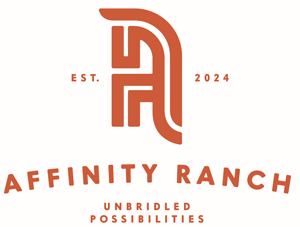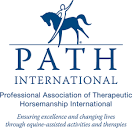Welcome to the Ranch!
NEWS!
As we turn the page on a new chapter full of unbridled possibilities, all updates, programming, and client information will now be shared on Affinity Ranch's website and social media platforms. Links for each can be found below. We look forward to welcoming you out to the ranch someday soon! PLEASE DO NOT USE ANY @PrayingHandsRanch.org emails - they are no longer being monitored! Please email |
Praying Hands Ranches, Inc. is a 501(c)(3) Equine Assisted Activities and Therapy (EAAT) Center. Mounted EAAT activities are dynamic treatments that focus on the frequent, rhythmic, low-amplitude movement of the horse to help individuals achieve specific physical, cognitive, social, and emotional goals. EAAT can be used to complement other, more traditional, therapies. Mounted EAAT stimulates the entire body of the client in special way. When involved with an equine, clients of all ages increase their self-esteem and therapy is often more enjoyable than standard modalities. Each client is treated according to his or her specific condition. Mounted equine interactions require rhythm, dexterity, and connection with another living being. Lessons undergo continual adjustment depending on progress and medical conditions. The simple act of sitting on a horse provides a passive therapy. The horse’s body provides warmth and stabilization. Exercises are designed to combine active and passive elements. The passive input the horse provides through gait and pace translates into active neuro-muscular repositioning responses by the client. Body placement of the client on the horse and tack selection are also factors that influence the effectiveness of this active therapy. Some EAAT activities may not be mounted and may focus on fine motor skills involved in grooming and the social and emotional connection between an individual and an equine.








